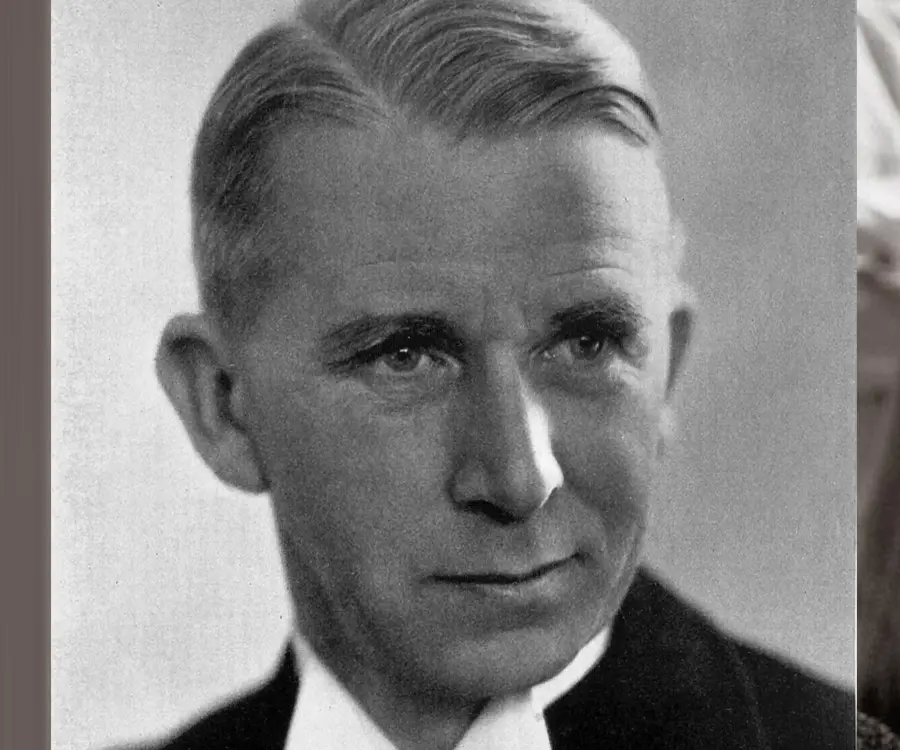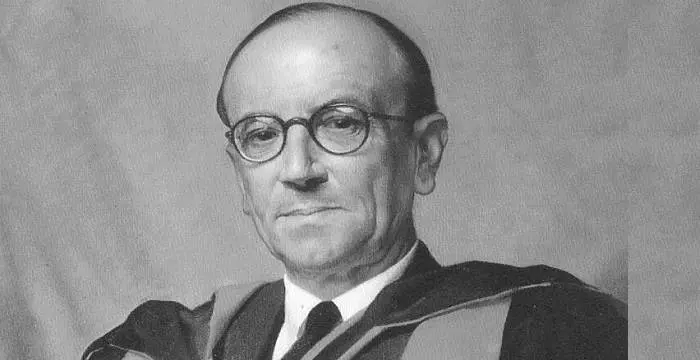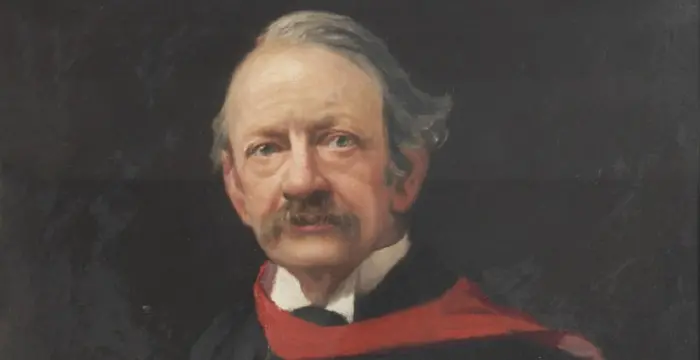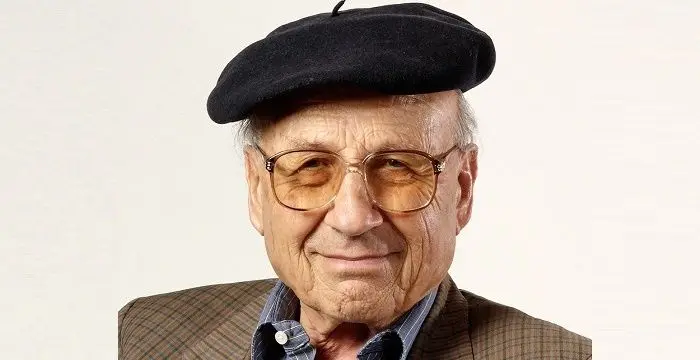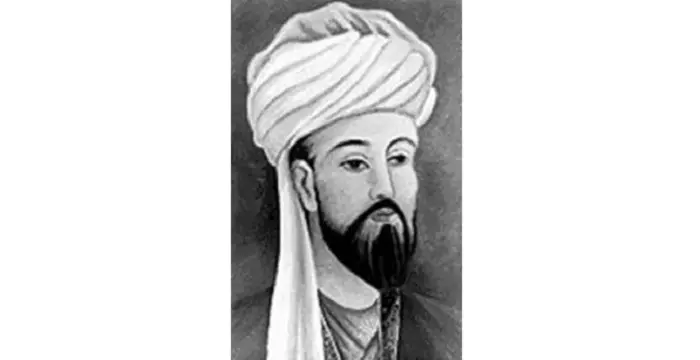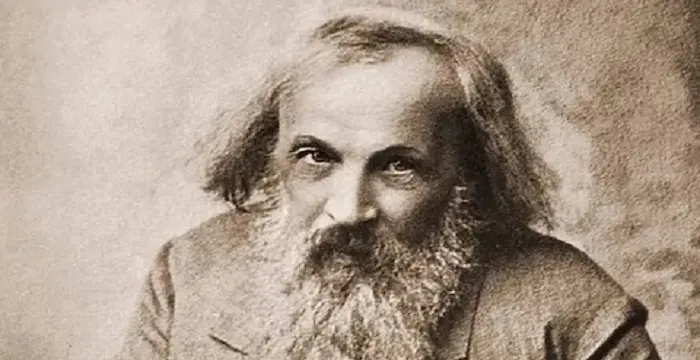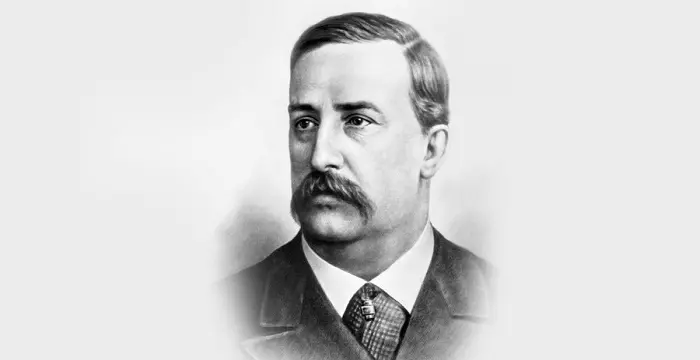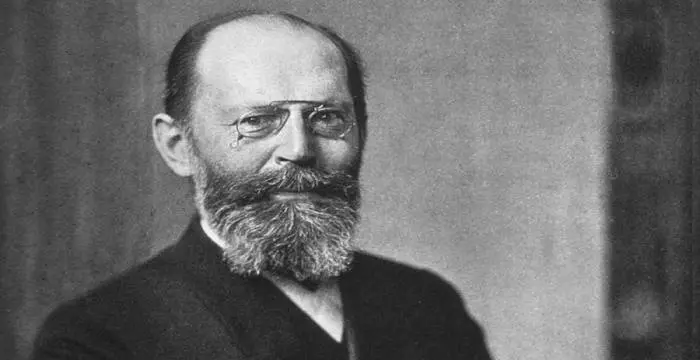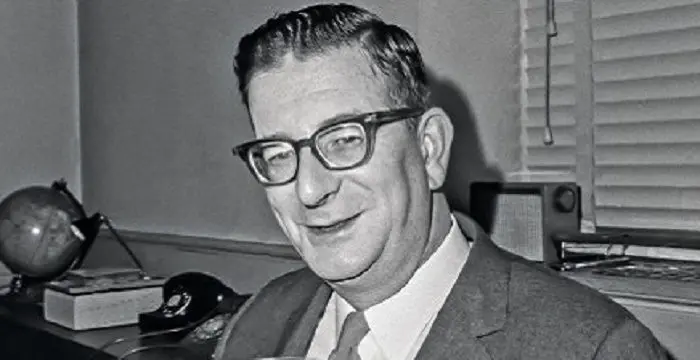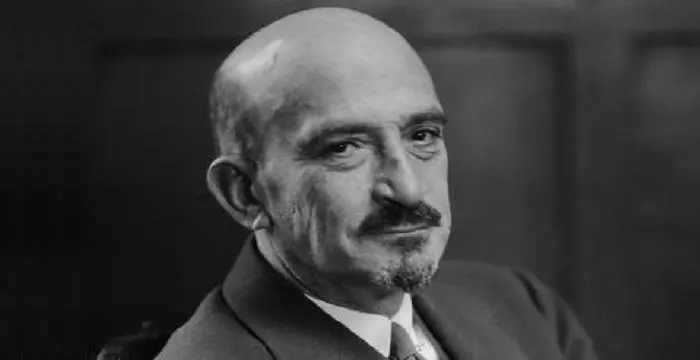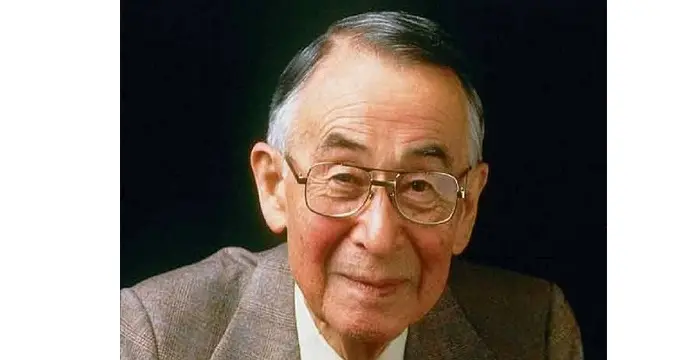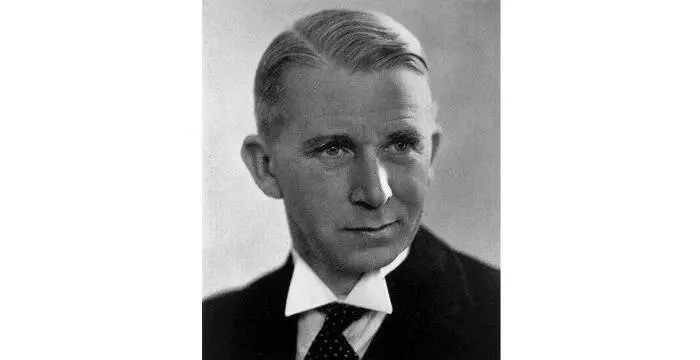
Norman Haworth - University Of Manchester, Career and Childhood
Norman Haworth's Personal Details
Sir Norman Haworth was a British Chemist who received the Nobel Prize for Chemistry in 1937
| Information | Detail |
|---|---|
| Birthday | March 19, 1883 |
| Died on | March 19, 1950 |
| Nationality | British |
| Famous | University Of Manchester, Scientists, Chemists, Organic Chemists |
| Universities |
|
| Notable Alumnis |
|
| Birth Place | Chorley, Lancashire, England |
| Gender | Male |
| Father | Thomas Haworth |
| Sun Sign | Pisces |
| Born in | Chorley, Lancashire, England |
| Famous as | Chemist |
| Died at Age | 67 |
// Famous Scientists
Juliane Koepcke
Juliane Koepcke is a German-Peruvian biologist, who was the lone survivor among the 92 passengers and crew of the ill-fated LANSA Flight 508 that crashed in the Peruvian rainforest on 24 December 1971. Know more about her life in this biography.
Henry Cavendish
Henry Cavendish was a theoretical chemist and physicist, renowned for discovery of hydrogen and calculation of the mass of earth. To know more about his childhood, profile, timeline and career read on
Konstantin Tsiolkovsky
Konstantin Tsiolkovsky was a Russian rocket scientist and a pioneer of astronautics. This biography provides detailed information about his childhood, family, personal life, career, achievements, etc.
Norman Haworth's photo
Who is Norman Haworth?
Sir Norman Haworth was a British Chemist who received the Nobel Prize for Chemistry in 1937 for his research on Carbohydrates and Vitamin C along with the Swiss Chemist Paul Karrer for his work on other Vitamins. His major work was in Sugars and he devised the correct structure for many of them including maltose, lactose, cellulose, starch and glycogen. His accomplishments not only contributed to the knowledge of Organic Chemistry, but also facilitated low-cost production of Vitamin C (ascorbic acid). His later researches were devoted greatly towards the further allocation of physical, chemical and biological problems related to bacterial polysaccharides. Sir Haworth is very well-known among Organic Chemists due to his development of the ‘Haworth Projection’ which is a 2-dimensional representation of 3-dimensional sugar structures. This method is still widely used in Bio-Chemistry. His book ‘The Constitution of Sugars (1929)’ is a standard text book in the domain.
// Famous University Of Manchester
James Chadwick
Sir James Chadwick CH was an English physicist, who won the 1935 Nobel Prize in Physics for his discovery of neutron. Check out this biography to know about his childhood, life, achievements, works & timeline.
J. J. Thomson
J.J. Thomson was an English physicist and mathematician. This biography profiles his childhood, life, academic career, research and timeline.
Milo Yiannopoulos
Milo Yiannopoulos is a British technology journalist. Let’s have a look at his family, personal life, career, achievements, controversies, and some facts.
Childhood & Early Life
Sir Walter Norman Haworth was born at Chorley, a small town in Lancashire, UK on March 19, 1883. His father, Thomas Haworth, was a linoleum manufacturer, whom Walter joined to work at the age of 14.
He developed immense interest in dyes and applied to study Chemistry, passed the entrance examination for the University of Manchester and joined its Chemistry Department as a student in 1903.
Career
He graduated from William Henry Perkin Jr. with First Class Honors in 1906 and after 3 years of research, was awarded Research Fellowship’ from the ‘Royal Commission of the Exhibition of 1851’ and went on a scholarship to Wallach’s laboratory at Gottingen, Germany for his Ph.D.
In 1910, he completed his Doctorate and returned to Manchester to receive his D.Sc degree in 1911. He achieved all these major qualifications in the shortest duration.
In 1911, Haworth took up his first assignment as a senior demonstrator at the Imperial College, London.
In 1912, he moved to the St. Andrews University, Scotland as a Lecturer of Chemistry where he developed interest in Carbohydrate Chemistry.
He began his work on Simple Sugars in 1915 and developed a new method for the preparation of Methyl Ethers of Sugars using Methyl Sulfate and Alkali, which is known as ‘Haworth’s Methylation’.
Haworth organized the laboratory of St. Andrews University to produce drugs and chemicals for the British Government during the World War I.
In 1920, he was appointed as Professor of the Chemistry Department at the Armstrong College of Durham University and became the Director and Head of the same the next year.
In 1925, he was appointed as Professor and Director of the Department of Chemistry at the University of Birmingham, and he remained in the position until his retirement in 1948.
Awards & Achievements
In 1933, Haworth and the assistant director of research, Sir Edmund Hirst and a team of post doctoral students, deduced the correct structure and optical isometric nature of Vitamin C. He suggested the name Ascorbic acid which is the universal name for Vitamin C. He received the Nobel Prize for Chemistry in 1937 for his ‘Investigations on Carbohydrates and Vitamin C’. He shared the Prize with Paul Karrer.
Norman Haworth was knighted in 1947.
Haworth remained President of the ‘Chemical Society’ during 1944 -1946 and Fellow (1928) and Vice President (1947-1948) of the Royal Society.
He received honorary Science degrees from the Universities of Belfast, Zurich and Oslo and honorary Doctor of Law from the University of Manchester.
Major Works
Sir Haworth wrote numerous scientific papers and contributed to Advances in Carbohydrate Chemistry. His book ‘The Constitution of Sugars’ was published in 1929 and remains a standard textbook.
Personal Life & Legacy
In 1922, he married Violet Chilton Dobbie, the second daughter of Sir James Johnston Dobbie. They had two sons.
He died of a sudden heart attack on his 67th birthday on March 19, 1950. The University of Birmingham named the Department of Chemistry as ‘Haworth Building’ in his memory. In 1977, the Royal Mail issued a postage stamp (along with 4 others) featuring Haworth’s achievement in synthesizing Vitamin C and his Nobel Prize.
// Famous Chemists
Henry Cavendish
Henry Cavendish was a theoretical chemist and physicist, renowned for discovery of hydrogen and calculation of the mass of earth. To know more about his childhood, profile, timeline and career read on
Walter Kohn
Nobel Laureate Walter Kohn was an Austrian-born American theoretical chemist and physicist. Check out this biography to know about his childhood, life, achievements, works & timeline.
Jabir Ibn Hayyan
Jabir Ibn Hayyan was a medieval era polymath. Check out this biography to know about his life, works and achievements.
Norman Haworth's awards
| Year | Name | Award |
|---|---|---|
Other | ||
| 0 | Davy Medal (1934) | |
| 0 | Nobel Prize for Chemistry (1937) Royal Medal (1942) | |
Norman Haworth biography timelines
- // 19th Mar 1883Sir Walter Norman Haworth was born at Chorley, a small town in Lancashire, UK on March 19, 1883. His father, Thomas Haworth, was a linoleum manufacturer, whom Walter joined to work at the age of 14.
- // 1903He developed immense interest in dyes and applied to study Chemistry, passed the entrance examination for the University of Manchester and joined its Chemistry Department as a student in 1903.
- // 1910 To 1911In 1910, he completed his Doctorate and returned to Manchester to receive his D.Sc degree in 1911. He achieved all these major qualifications in the shortest duration.
- // 1911In 1911, Haworth took up his first assignment as a senior demonstrator at the Imperial College, London.
- // 1912In 1912, he moved to the St. Andrews University, Scotland as a Lecturer of Chemistry where he developed interest in Carbohydrate Chemistry.
- // 1914 To 1918Haworth organized the laboratory of St. Andrews University to produce drugs and chemicals for the British Government during the World War I.
- // 1915He began his work on Simple Sugars in 1915 and developed a new method for the preparation of Methyl Ethers of Sugars using Methyl Sulfate and Alkali, which is known as ‘Haworth’s Methylation’.
- // 1920In 1920, he was appointed as Professor of the Chemistry Department at the Armstrong College of Durham University and became the Director and Head of the same the next year.
- // 1922In 1922, he married Violet Chilton Dobbie, the second daughter of Sir James Johnston Dobbie. They had two sons.
- // 1925 To 1948In 1925, he was appointed as Professor and Director of the Department of Chemistry at the University of Birmingham, and he remained in the position until his retirement in 1948.
- // 1929Sir Haworth wrote numerous scientific papers and contributed to Advances in Carbohydrate Chemistry. His book ‘The Constitution of Sugars’ was published in 1929 and remains a standard textbook.
- // 1933 To 1937In 1933, Haworth and the assistant director of research, Sir Edmund Hirst and a team of post doctoral students, deduced the correct structure and optical isometric nature of Vitamin C. He suggested the name Ascorbic acid which is the universal name for Vitamin C. He received the Nobel Prize for Chemistry in 1937 for his ‘Investigations on Carbohydrates and Vitamin C’. He shared the Prize with Paul Karrer.
- // 1947Norman Haworth was knighted in 1947.
- // 19th Mar 1950 To 1977He died of a sudden heart attack on his 67th birthday on March 19, 1950. The University of Birmingham named the Department of Chemistry as ‘Haworth Building’ in his memory. In 1977, the Royal Mail issued a postage stamp (along with 4 others) featuring Haworth’s achievement in synthesizing Vitamin C and his Nobel Prize.
// Famous Organic Chemists
Dmitri Mendeleev
Dmitri Mendeleev was a Russian chemist who is best known for his discovery of the periodic law. Check out this biography to know about his childhood, life, achievements, works & timeline
Aleksandr Borodin
Aleksandr Borodin was a prodigal Russian music composer and scientist. This biography gives detailed information about his childhood, life, works, achievements and timeline.
Hermann Emil Fischer
Emil Fischer was a Nobel Prize winning chemist from Germany who is known for inventing the ‘Fischer Projection’ method. To know more about his childhood, career, profile and timeline read on
Robert Burns Woodward
Robert Burns Woodward was a Nobel Prize winning American chemist known for his work on complex natural products. Check out this biography to know about his childhood, life, achievements, works & timeline.
Chaim Weizmann
The famous scientist is known for his discovery of the industrial fermentation. He was also the first President of Israel. To know more about the childhood, profile, career and timeline of Chaim Weizmann read on.
Charles J Pedersen
Charles J Pedersen was an American chemist who discovered the chemical compound, crown ethers. Explore this section to get details about his life, career and scientific discoveries.
Norman Haworth's FAQ
What is Norman Haworth birthday?
Norman Haworth was born at 1883-03-19
When was Norman Haworth died?
Norman Haworth was died at 1950-03-19
Where was Norman Haworth died?
Norman Haworth was died in Barnt Green
Which age was Norman Haworth died?
Norman Haworth was died at age 67
Where is Norman Haworth's birth place?
Norman Haworth was born in Chorley, Lancashire, England
What is Norman Haworth nationalities?
Norman Haworth's nationalities is British
What was Norman Haworth universities?
Norman Haworth studied at University Of Manchester, University of Manchester, University of Göttingen
What was Norman Haworth notable alumnis?
Norman Haworth's notable alumnis is University Of Manchester
Who is Norman Haworth's father?
Norman Haworth's father is Thomas Haworth
What is Norman Haworth's sun sign?
Norman Haworth is Pisces
How famous is Norman Haworth?
Norman Haworth is famouse as Chemist



